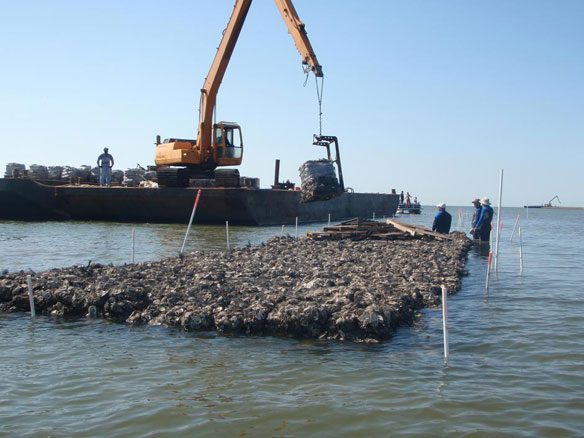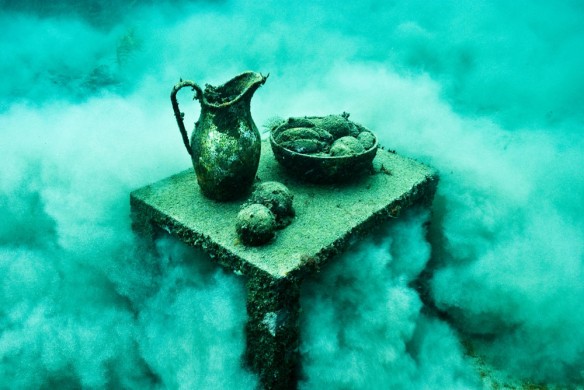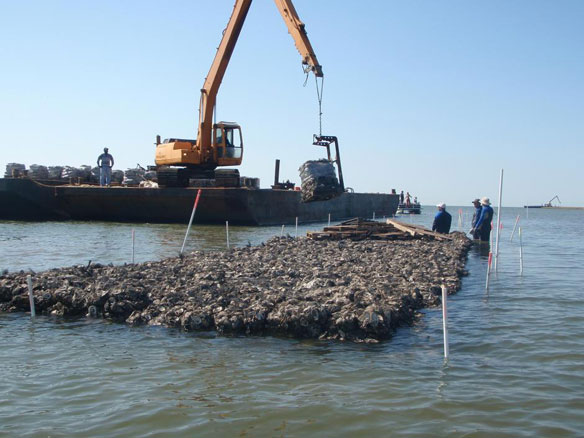
Oyster reef restoration in Alabama.
A submerged breakwater reef was created along two stretches of shoreline, protecting more than 18 acres of habitat for submerged aquatic vegetation and creating almost two acres of oyster reef. When all is said and done, the submerged reefs will protect more than a mile of coastal habitat by reflecting erosive wave energy away from the shoreline, unlike traditional erosion protection structures that contribute to habitat loss. Captions and Photo source: NOAA Fisheries
Excerpts;
Over the next couple months, more than 2 million tons of concrete material will be dropped over local artificial reefs, providing habitat for ocean life on barren stretches of the sea floor…
Read Full Article, Lumina News
An Oyster in the Storm, Op Ed by Paul Greenberg, The New York Times
Just as corals protect tropical islands, these oyster beds created undulation and contour on the harbor bottom that broke up wave action before it could pound the shore with its full force. Beds closer to shore clarified the water through their assiduous filtration (a single oyster can filter as much as 50 gallons of water a day); this allowed marsh grasses to grow, which in turn held the shores together with their extensive root structure.
“Angel Azul Movie,” by Marcelina Cavat
Learn more about this award winning documentary Marcelina Cavat, featuring Jason deCaires Taylor’s creation: the underwater museum, MUSA (Museo Subacuatico Del Arte).

Environmentally inspired artist, Jason deCaires Taylor, created a hauntingly beautiful underwater museum with his life-like statues providing habitat for marine life, coral re-growth and mystery for divers to explore. This featured sculpture, titled “Grenada”, is installed in the underwater museum, MUSA (Museo Subacuatico Del Arte) off the coast of Cancún.
Photograph courtesy of © Jason deCaires Taylor; for Coastal Care’s Photograph of the Month, August 2013.









